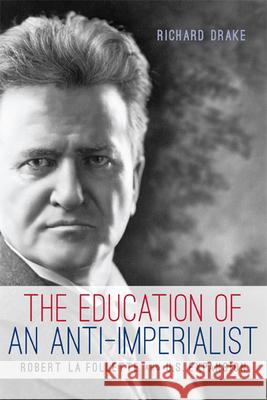The Education of an Anti-Imperialist: Robert La Follette and U.S. Expansion » książka
The Education of an Anti-Imperialist: Robert La Follette and U.S. Expansion
ISBN-13: 9780299295240 / Angielski / Miękka / 2013 / 550 str.
The Education of an Anti-Imperialist: Robert La Follette and U.S. Expansion
ISBN-13: 9780299295240 / Angielski / Miękka / 2013 / 550 str.
(netto: 130,29 VAT: 5%)
Najniższa cena z 30 dni: 130,31 zł
ok. 30 dni roboczych
Bez gwarancji dostawy przed świętami
Darmowa dostawa!
Robert M. La Follette (1855 1925), the Republican senator from Wisconsin, is best known as a key architect of American Progressivism and as a fiery advocate for liberal politics in the domestic sphere. But "Fighting Bob" did not immediately come to a progressive stance on foreign affairs. In The Education of an Anti-Imperialist, Richard Drake follows La Follette's growth as a critic of America's wars and the policies that led to them. He began his political career with conventional Republican views of the era on foreign policy, avidly supporting the Spanish-American and Philippine-American Wars. La Follette's critique of empire emerged in 1910, during the first year of the Mexican Revolution, as he began to perceive a Washington Wall Street alliance in the United States' dealings with Mexico. La Follette subsequently became Congress's foremost critic of Woodrow Wilson, fiercely opposing United States involvement in World War I. Denounced in the American press as the most dangerous man in the country, he became hated and vilified by many but beloved and admired by others. La Follette believed that financial imperialism and its necessary instrument, militarism, caused modern wars. He contended they were twin evils that would have ruinous consequences for the United States and its citizens in the twentieth century and beyond.
An excellent book. . . . As Drake fully documents, La Follette's warnings about World War I] profiteers and the lust for power were fully justified. Then as now, the American people were lied to by the government and media and manipulated into the stink and blood of war." Mark Taylor, The Daily Call
Scholars will . . . value the insights into La Follette's foreign policy education. The Historian"











